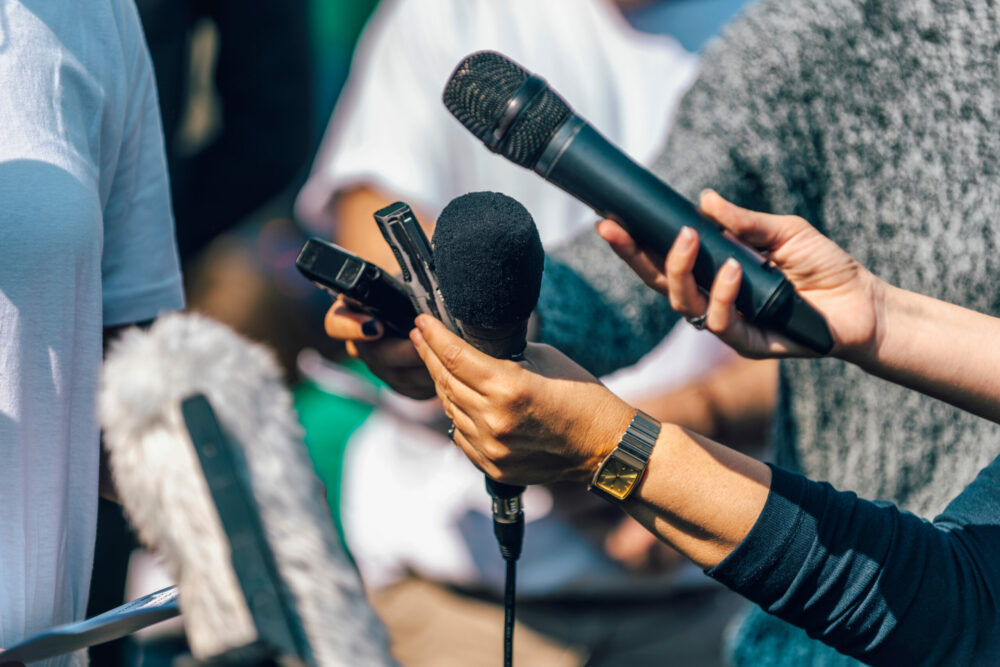During my 25 years in journalism, including on-air at CBS News and leading the national investigative unit at Hearst Television, I spoke to a lot of schools and institutions of higher education. Some conversations were mundane; others were heart-breaking.
The vast, vast majority of teachers, schools, universities, and district administrators, school board members, college presidents, and other education stakeholders who spoke with me for my stories had a deep influence on my reporting, the framing of the piece, what information got included, and how thoroughly I could inform our viewers, listeners, and readers.
And that’s where schools, colleges, and journalists share a common calling: they’re all committed to educating their communities.
Each day, K-12 schools and institutions of higher education have amazing stories to tell as they mold our next generation. Unfortunately, sometimes, especially during a crisis, leaders in education miss an opportunity to keep their communities informed, which can undermine the support – both abstract and concrete – that they need from those very same constituents.
These 3 Strategies Bolster Crisis Communications, Help Debunk Rumors
If the only time school or university administrators engage with journalists is when there’s a crisis, then that’s a problem. Rather than be reactionary, campuses can seize their own narratives and be proactive with media coverage. These three best practices include:
- Visibility: Frequent, proactive engagement will increase your news coverage. More news coverage – of the story lines you want to convey – will ideally bolster the campus’ standing in the community, usually generating increased good will and visibility. Such recognition will go a long way when there’s a crisis – or a bond measure at the polls. Look for visual and newsworthy stories to pitch to reporters. Then reach out to your local and regional media outlets. You won’t always get a “yes,” but you won’t always get a “no,” either.
- Relationships: Developing relationships with journalists ahead of an emergency will serve you well when the inevitable crisis comes. Journalists value relationships with sources and experts. It would be impossible for me to count the number of times I’ve called an educator just for background information or research on a story – not even for a quote or interview. When more tense stories arose, I already had a relationship with administrators and educators that allowed me to accurately and swiftly report on a developing safety or security situation – and debunk viral rumors in the community or on social media, rumors that can actively do harm. View building relationships with journalists in your community as another stakeholder to nurture.
- Transparency: Being open and transparent with journalists is a best practice because it shows you – a leader in the education community – have nothing to hide. Transparency fosters trust, and trust fosters relationships. Parents trust you to educate their kids and keep them safe. Trust is a powerful commodity.
If you follow those three principles, I can guarantee two things will happen: you won’t like every story and, on the whole, you’ll still be glad you engaged with journalists.
I also promise that identifying a visual story, crafting your message and reaching out to journalists for coverage will get more comfortable with practice. And that’s a lesson that will benefit you and your community.
Mark Albert is the founder and CEO of Media Advisory Experts. Mark is also a Peabody and EMMY award-winning master storyteller with a 25-year journalism career distinguished by investigative and political reporting, innovative storytelling techniques, and creative communications. He’s traveled the world for CBS News and reported from the White House, Capitol Hill, and the U.S. Supreme Court; created and led a national investigative unit for Hearst Communications; taught journalists in newsrooms in the U.S., Vietnam, and Pakistan; launched an online news startup and podcast about travel news and deals; and created a media database to drive countless earned media appearances.
For more information on media training opportunities or the Media Mastery Experts LIVE! media training event Sept. 12-14, 2024, in Washington, D.C., email [email protected].
Note: The views expressed by guest bloggers and contributors are those of the authors and do not necessarily represent the views of, and should not be attributed to, Campus Safety.







